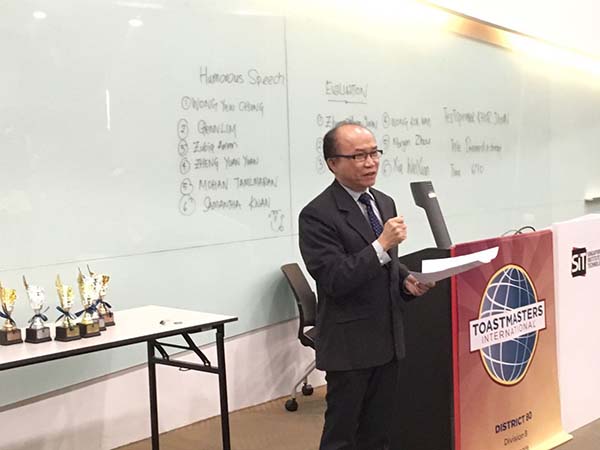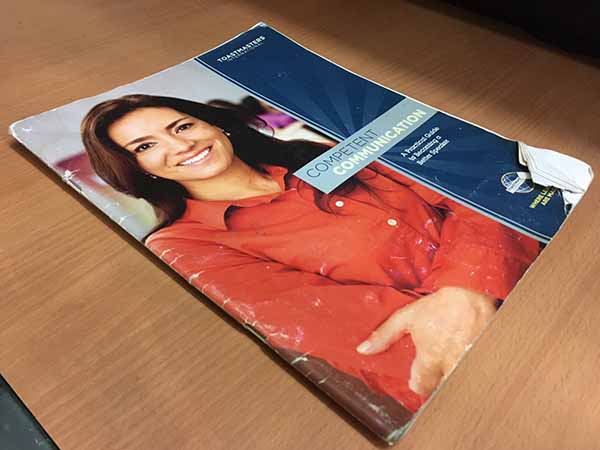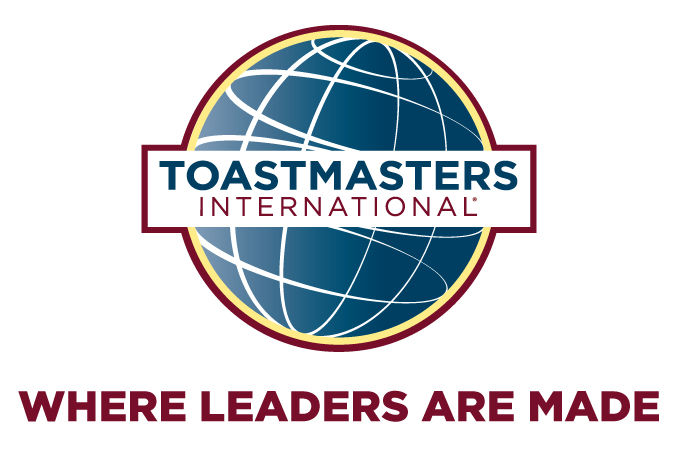Public Speaking
Public speaking is one of the most highly valued skills. Many talented, abled and hardworking people are hiding behind the scene, below the stage, undertaking administrative roles because of the fear of public speaking. They are afraid of making fools of themselves in public speaking, getting judged for their unpolished presentations reverberated with their shivering tones and shaky knees. As a result, they have their credits stolen by others who are unafraid to step up on a stage, stand up in front of a crowd and speak publicly.
However, there are others who are aware of the value of public speaking skills. They have taken up the courage to build up their public speaking skills and are determined to hone this skill to the finest level. Many of these people are trainers and corporate executives who hold high positions. Public speaking is a part of their daily performance which can make or break their image and thus their rice bowls. Many network marketers envisioning the glorious days when they are promoted to make presentations on the stage of their companies have also begun to make preparation for the days ahead, developing their public speaking skills. And yes, these people make up a great proportion of toastmasters.
To most people who have heard of the Toastmasters movement, they immediately associate Toastmasters with public speaking. Indeed, Toastmasters is almost synonymous with public speaking after all that is the overt aspect of the Toastmasters movement. In becoming a toastmaster, you are given manuals, beginning from the basic to the advanced, helping you to develop the essentials of your public speaking skills. You will also be assigned a mentor to help you along in your first few prepared speeches. The Toastmasters provide you the platform to carry out your speeches before a crowd who evaluates and encourages you on how to improve on your public speaking skills.
Is there any other way of improving your public speaking skills? Yes, you can always find courses on public speaking. In those courses, you will probably be given some notes and you might just be given a chance to speak once before your class no matter how terrible that experience will be and you possibly would think to yourselves that you would never do it again. Public speaking has to be practiced regularly and the moment you stop, you slide. Attending public speaking courses do not provide you much opportunity to practice public speaking. The longer the course, the higher the fee you pay. In Toastmasters, you get to speak in your Toastmasters Club as well as in other clubs you wish to visit. Toastmasters do not restrict you from speaking unless you choose not to speak.
The Communication Track
Public Speaking is one of the two educational tracks of Toastmasters, namely, Leadership and Communication (Public Speaking). In Toastmasters, Public Speaking is classified as Communication. This is because in the educational area of Communication, it includes more than just Public Speaking but also the skills and techniques of interpersonal communication apart from the public platform and the art of persuasion.
A beginning toastmaster who has just joined his first Toastmasters Club, will be trained in the fundamental skills of public speaking via carrying out 10 prepared speech projects from the Competent Communication Manual. Upon completion of these 10 projects, he/she will earn the title of Competent Communicator.

Competent Communication Manual

The 10 projects of the Competent Communication Manual are as follow:
- The Ice Breaker
- Organise Your Speech
- Get to the Point
- How to Say It
- Your Body Speaks
- Vocal Variety
- Research Your Topic
- Get Comfortable with Visual Aids
- Persuade with Power
- Inspire Your Audience
The 10 projects in this manual cover the fundamental skills of public speaking. Mastering the skills in this manual alone will make anyone a very good public speaker.
Advanced Communication Series
There are 15 manuals focusing on different skills and techniques for a toastmaster to choose the area for which he/she would like to focus and develop his/her public speaking skills in. The 15 manuals of the Advanced Communication Series are as follow:
- The Entertaining Speaking
- Speaking To Inform
- Public Relations
- Facilitating Discussion
- Specialty Speeches
- Speeches By Management
- The Professional Speaker
- Technical Presentations
- Persuasive Speaking
- Communicating On Video
- Storytelling
- Interpretive Reading
- Interpersonal Communication
- Special Occasion Speeches
- Humorously Speaking

After having grounded on the fundamental skills in public speaking, the manuals in the Advanced Communication Series delve deeper into more specialised skills in different professions a toastmaster is working as. If a person’s job is in the technical field such as an engineer, you may want to learn how to give a better technical presentation to people who are working with at your job. Perhaps you are working in sales or even working in some capacity of a leader, you want to develop your persuasion skills. Then the Persuasive Speaking manual may be your choice. Each of the 15 manuals focus on a particular area that match certain communication skill set of different trades in our society.
Upon completing 2 manuals from the Advanced Communication Series, a toastmaster will be awarded the title of Advanced Communicator Bronze (ALB).
After earning the Advanced Communicator Bronze (ALB) title, a toastmaster will be awarded the title of Advanced Communicator Silver (ALS) if he/she completes the projects from another 2 more manuals from the Advanced Communication Series and conduct any 2 presentations from The Better Speaker Series and/or The Successful Club Series.
A toastmster who is an Advanced Communicator Silver (ALS) can move on to earn the title of Advanced Communicator Gold (ALG) by completing the projects from another 2 more manuals (i.e. a total of 6 different manuals) from the Advanced Communication Series, plus undertaking 2 other projects. He has to conduct a presentation from the Success/Leadership Series, or Youth Leadership and coach a new member with the first 3 speech projects from the Competent Communication manual.
An Advanced Communicator Gold (ACG) will be awarded the title of Distinguished Toastmaster (DTM) if he has also earned the title of Advanced Leader Silver (ALS).
In the year 2018, Toastmasters International has launched its new Pathways programme the will eventually replaced the Toastmasters traditional education programme of the Communication Track and Leadership Track. In Pathways, the projects and skill sets taught in the Competent Communication manual and the Advanced Communication Series are reorganised along with new additional materials, projects to be undertaken by toastmasters. Toastmasters who have earned any of the above titles will continue to retain their titles. However, for toastmasters who has only embarked on the Pathways programme, they can earn badges along the way but they can only earn the title of Distinguished Toastmaster (DTM) after having met the neceesary criteria.
In the Toastmasters educational system, there is no grading nor pass/fail to each project taken. A toastmaster carries out his/her project and receives an evaluation and feedback, then moves on to the next project. It is totally up to the toastmaster to reflect on his/her performance and takes action to improve himself/herself. If you do not reflect on your own performance and seek to improve yourself, you can go through the whole toastmaster journey and earn the title of Distinguished Tomaster (DTM) and yet unable to speak well. No disrespect meant to any Distinguished Tomaster. There are many Distinguished Tomasters who are excellent speakers. However, I have come across toastmsters who only have the title of Competent Communicator and yet they can speak better than some Distinguished Toastmasters. There are some new toastmasters who were doing their first project on Ice Breaker and yet they were way better than those who have completed Project 10 of the Competent Communication manual.
Let not your focus be on chasing after titles and completing projects for the sake of completing them. Focus on learning your lessons and bulding your substance. If the cat would simply stop chasing after its own tail, the cat will realise that its tail will follow the cat everywhere the cat goes.
